The issues impact a large number of Ghanaians yet they often go unattended. Families struggle with the consequences and communities bear the weight of this burden.
Princess, 25, a bubbly and outgoing New Yorker, was alarmed to find herself spiraling into depression after visiting Ghana, her home country. During a solo trip to the capital, Accra, in late 2022, she had got drunk with a family friend. The next morning, she was convinced she had been raped. “I woke up feeling like something had transpired, but I only could remember bits and pieces of it,” she said. “I asked him, ‘Did something happen?’ He kept saying no, but I know in my head that something definitely happened. I’m like, something happened, for a fact. I know, ’cause I know myself.”
She couldn’t shake off the feeling she had been sexually assaulted. Finally, she confided in her family. “I’m a loudmouth,” she said. “The first person I told was my brother. And then later on, that’s when I told my stepdad and then I told my mom.”
Her stepfather immediately confronted her alleged assailant. “My stepdad got him to apologize for whatever happened,” even though the person involved refused to accept any blame. However, her mother was far from supportive. “My mother said it was my fault because she had warned me not to go.”
Despite feeling disappointed by her mother’s reaction, Princess said she understood the complexity of the situation. “ When something like that has happened, I feel like you need to be sensitive about it. But my mother doesn’t know what sensitivity is.”
Upon returning to the US, Princess revealed the profound impact the alleged rape had on her mental well-being. “It was a really difficult time for me because there was a lot of shame, guilt, sadness, and a lot of self-blaming, too. It was a lot of emotions, I mean, negative emotions that were taking place,” she said.
In Ghana, she chose not to seek help. “The government in Ghana is terrible when it comes to mental health. So I didn’t even want to go through that whole ordeal. If it happened here in the US, some kind of justice could have taken place.”
In America, she sought the advice of a therapist. Although she found her sessions only marginally helpful, they highlighted the difference in attitudes towards mental health in Ghana and the US. Princess credits the openness of Americans for her ability to disclose the assault.
Cultural beliefs clash with the urgent need for mental health support

A street view of Jamestown in Accra. Photo by Doreen Abanema Abayaa
In Ghana, where cultural beliefs and spiritual practices intersect, the stigma surrounding mental health is especially pronounced. Some believe the erratic behavior of some people may be linked to a divine call. The conviction persists that mental health issues often result from spiritual curses or malevolent forces.
Gloria Addo, the founder, and chairperson of SoftLife Ghana, has over 19 years of experience in the mental health field. On a Zoom call from Accra, she said, “People associate mental illness with curses. If you’re struggling, it’s assumed that someone has placed a curse on you. This fear prevents people from seeking help.”
Addo witnessed this in her own family. “I grew up in JamesTown, a densely populated area in Accra,” she said. Her father, a successful chartered accountant, exhibited erratic behavior. The family was told that someone had cast a voodoo spell on him in the form of a powder sprinkled on his chair at work. More likely, he had undiagnosed bipolar disorder.
“He was exhibiting all the signs of depression and some anxiety-related symptoms,” Addo said. “But because of our cultural background, everybody diverted away from the main cause, and we did nothing. We lost him.”
In Ghana, there are few reliable mental health statistics. However, the World Health Organization (WHO) estimates that 13% of Ghanaians suffer from mental health disorders. There is some evidence that schizophrenia is on the rise. In 2020, nearly 20,000 people sought help with the condition. The number increased to almost 25,000 in 2022. On current trends, the figure for 2023 is likely to exceed 30,000. This disorder, which typically appears in one’s early twenties, exhibits persistent psychotic symptoms like hallucinations, delusions, and disorganized thoughts.
Funny Face, Okyeame Kwame, and others share their struggles, challenging societal norms

Ghanaian comedian Funny Face. Photo from his YouTube channel
Celebrities have begun to speak out. On March 25, 2024, a well-known comedian and musician, Funny Face, allegedly drove under the influence following news that his former partner, Vanessa, had denied him access to their twins. Funny Face has been unusually honest about battling depression since the break-up of his marriage. In an interview with Graphic Showbiz in 2020, he said, “My depression was so serious that I could have died if not for God.”
A year later on February 15, 2022, Funny Face was taken to the Accra Psychiatric Hospital by order of the Ofankor Circuit Court after making threatening posts on his Instagram. He has since apologized, saying, “I wanna say sorry to anyone I offended during my time of depression. Everybody, anybody I insulted, please forgive me, I’m human”.
Other Ghanaian celebrities like Adomaa, MzVee, Master Richard, and Wendy Shay have also begun to speak out. Ghanaian musician, Okyeame Kwame, also said he thought he was going to die.
In an interview on GhanaWeb in February 2024, the musician opened up about his fears of staying relevant. “I felt that my career was about to crash, as I thought that the younger generation of music lovers could not identify with my songs. I had a mental meltdown,” Kwame admitted. “All the things that I was afraid of — that my audience was going to grow and enter an age where they would want to listen to a veteran musician like Amakye Dede instead of rap.”
His worst fears were confirmed when at a launch of one of his singles, “No one showed up at the event. I remember shedding tears that night.”
However, we often only hear these stories when celebrities have been able to pick themselves up. They fear that if they were to truly open up about their struggles or mental health issues, the stigma would never wear off and they will be put in a category of people who are ‘crazy’.
The silent suffering behind societal judgment and exclusion

Photo of a young woman sitting on top of the mountain Afadjato in the Volta Region of Ghana. Photo by Jonathan Abayaa
This perception creates a double-edged sword for sufferers. On one hand, they grapple with their internal struggles, and on the other, they face societal judgment and exclusion. “Stigma leads to social isolation,” Addo said. “People fear being labeled as ‘crazy’ or ‘spiritually afflicted,’ so they often suffer in silence.”
Families who can’t afford mental health care often let their relatives roam the streets, adding homelessness and isolation to their problems. “Imagine being excluded from every social gathering. That’s the reality for many individuals dealing with mental health challenges. They fear becoming the target of gossip, ridicule, or even witchcraft accusations,” Adoo said.
What are the root causes behind mental health struggles? Unlike physical ailments with clear causal links, they often stem from a complex interplay of factors. Biological, psychological, social, and medical elements make it difficult to pinpoint one single cause.
Nina Freiberger, a postdoctoral scholar for communicating statistics at Stony Brook University with an educational background in health communication, explains the complexities of these matters explaining the distinction between normal feelings of anxiety and Generalized Anxiety Disorder (GAD).
“It is normal to experience feelings of anxiety when you are nervous or uneasy about something.” However, she clarified that GAD is a mental health issue, characterized by persistent feelings of nervousness or uneasiness without a clear cause. “Someone might feel anxious about an exam, but that anxiety would likely abate when the exam ended. Someone with GAD would experience similar anxiety, but without a specific reason to attribute it to,” she said.
Freiberger further explained that individuals experiencing prolonged, unexplained anxiety might be suffering from GAD.
Root causes, from genetics to societal pressures, shaping mental well-being
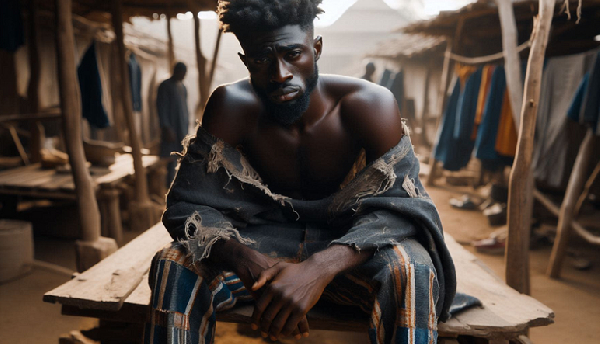
A portrayal of a man, burdened by the harsh realities of life and the stigma from society. Image created by Cipilot
The human genetic composition significantly impacts the body’s vulnerability to health disorders. For example, if a relative has a background of depression, anxiety, or other conditions, other family members may have an increased likelihood of facing struggles. Additionally, the levels of brain chemicals, like serotonin and dopamine can greatly influence well-being. These chemicals function as messengers in the brain by transmitting signals between nerve cells.
Serotonin is commonly linked to mood control, sleep patterns, and appetite regulation while dopamine is associated with feelings of pleasure, reward experiences, and motivation. When there are disruptions, these chemical levels can contribute to the onset or worsening of health challenges.
“There’s very much a genetic component,” Freiberger said. “If members of your family have experienced mental health issues, there’s a likelihood of inheriting susceptibility,” she said. However, “Some mental health issues do run in families, though environmental factors also play a role.”
Early life experiences, particularly those involving trauma, neglect, or abuse, can leave lasting scars that increase the risk of mental illness. Chronic stress, negative thinking patterns, and difficulty coping with emotions can also be significant contributors. For example, a child who experiences ongoing emotional abuse may develop anxiety or depression later in life. “Trauma can certainly contribute to mental health issues such as depression, anxiety, and PTSD,” Freiberger said.
Ghanaians speak out, advocating for education, awareness, and destigmatization
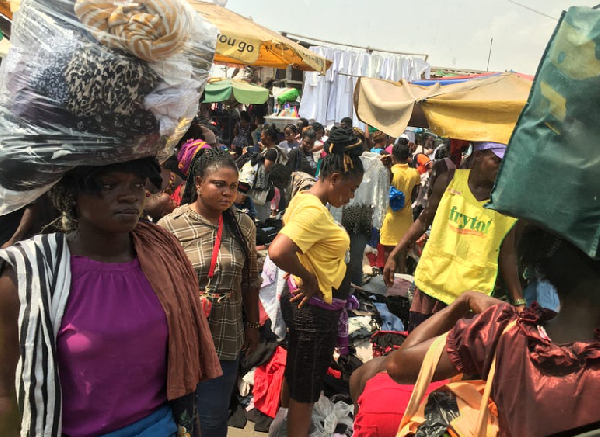
The vibrant scene at Makola market as market women engage in a trade of secondhand clothing. Photo by Doreen Abanema Abayaa
Despite efforts by the Ghanaian government to improve mental healthcare services, significant gaps remained. Education on mental health is limited. Most people are unaware that the social environment can play a critical role in mental well-being. Social isolation, poverty, discrimination, and lack of access to social support can all have a negative impact. Someone struggling financially may experience anxiety or depression due to the stress of keeping a roof over their head.
Certain health issues can heighten the chances of experiencing mental health struggles and vice versa. Conditions, like pain, thyroid disorders, and neurological issues can all have an impact on psychosocial well-being. Furthermore, medications prescribed for ailments might come with side effects affecting mental health. For instance, individuals dealing with pain may find themselves battling feelings of depression due to the limitations it imposes on their lives.
The use of drugs and alcohol can be influenced by factors, such as peer influence, stress, and one’s emotional well-being. Many individuals start using substances as a means to cope with health challenges, like depression or anxiety. As time passes the brain’s chemical balance may shift, resulting in addiction.
“Honestly, there’s no proper cure for mental issues,” Ghanaian dancehall musician, Jupitar said. “Doctors may administer temporary solutions, but true healing comes from self-awareness and consciousness. When you find yourself lost mentally, you have to find yourself mentally.”
He lived in New Jersey, in the United States, for a time and emphasized how environmental conditions can affect one’s health. “Location change can also be a factor,” he said.
Jupitar expressed concern about the low level of understanding in Ghana, in contrast to America. “Ghanaians have less knowledge about mental issues,” he said. “The economy and the hustle for survival overshadow any focus on mental health. Regardless of what you go through, you’re expected to keep grinding.”
Jeon Hae-Dong, a drone photographer and filmmaker, echoed Jupitar’s sentiments. “Ghanaians often view mental health issues as a joke or a sign of weakness,” he said. “There’s a serious lack of awareness and education on the topic.”
Jeon proposed a proactive approach to addressing mental health challenges in Ghana. “We can set up volunteer therapist programs in schools and workplaces,” he suggested. “We need to normalize seeking help and provide support for those struggling.”
Data Collection: Revealing Ghana’s perceptions of mental health
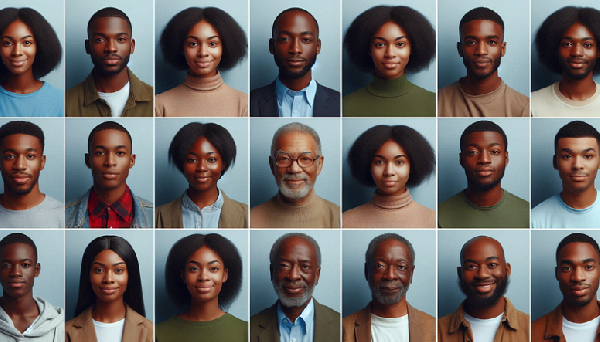
A collage of people from different age groups. Created by Copilot
As part of this project, a questionnaire was sent to over 80 Ghanaians in January this year, seeking their insights into mental health. More than half (51%) of respondents said they had a very clear understanding of the issue and 47.5% said they had a “somewhat clear” grasp. However, when asked, ‘Do you think Ghanaians are open to talking about their mental health issues?’ more than 70% answered ‘No’.
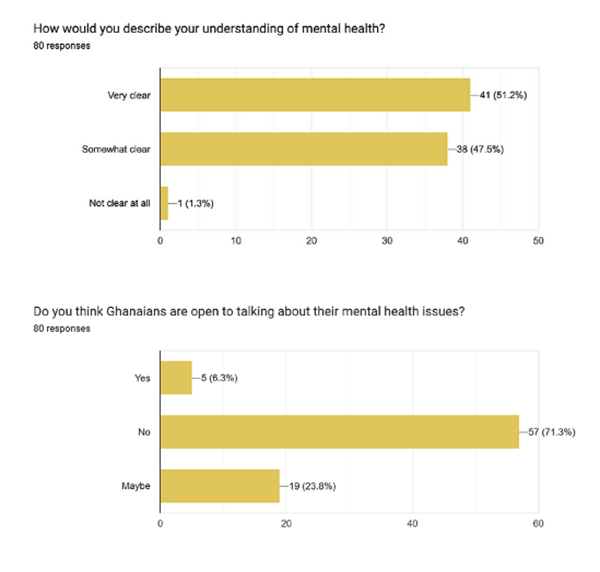
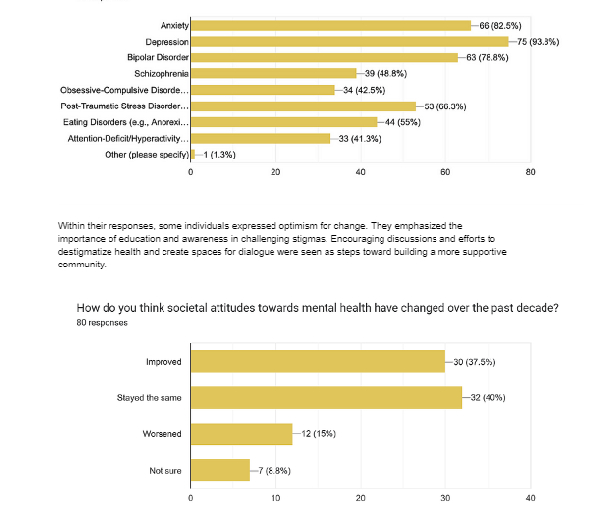
The majority of respondents consisted of men between the ages of 24 and 34. According to their additional responses in the questionnaire, it emerged that many believed admitting to mental health challenges would be seen as a sign of weakness in men. Their fear of judgment and discrimination was evident, with some expressing concerns about being labeled as ‘unstable’ or ‘feeble’ if they were to talk about their struggles. This apprehension was worsened by a lack of understanding and knowledge about mental health concerns, leaving them feeling unprepared for conversations on the subject.

Within their responses, some individuals expressed optimism for change. They emphasized the importance of education and awareness in challenging stigmas. Encouraging discussions and efforts to destigmatize health and create spaces for dialogue were seen as steps toward building a more supportive community.
As Princess’s experience has shown, Americans are more open than Ghanaians to conversations about mental health. But raising awareness and educating people has been a complex journey marked by gradual advancements rather than a simple straightforward path.
Progress, challenges, and the role of education in reshaping perceptions
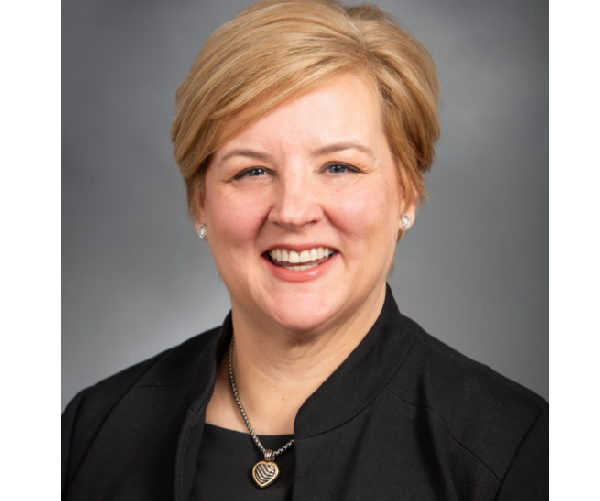
Advance practice nurse and clinical associate professor for advanced practice nursing at Stony Brook University, Dr Kelly Walker
An American mental health practitioner with 30 years of experience, who wished to remain anonymous, recalled the stigma that surrounded mental health in the early 1980s and 90s, drawing from her experiences working with diverse populations, “I worked with nurses from many different places like Africa, the Philippines, and Ireland,” she said. She noticed there were deeply ingrained cultural perceptions among health workers at her hospital in the Bronx. Her Filipino colleagues were reluctant to visit certain units, particularly the psychiatric ward where she was stationed.
“They wouldn’t come and visit me outside the unit,” she said. “And then I found out, they said, well in the Philippines, if you go into the psych unit you’ll never get out.” Since then, progress has been painfully slow but some attitudes have changed.
According to Dr Kelly Walker, an advance practice nurse and clinical associate professor for advanced practice nursing at Stony Brook University, the normalization of mental health conditions is crucial to reducing stigma and promoting access to care. The impact of the 9/11 attacks in 2001, followed by the Covid-19 pandemic in 2020 marked a shift in people’s attitudes towards mental health. As lockdowns and social isolation became commonplace, the prevalence of anxiety and depression surged.
Data from the National Institute of Mental Health in 2021 indicates that more than one-fifth of US adults have been diagnosed with various mental health conditions, classified as Any Mental Illness (AMI) and Serious Mental Illness (SMI). However, Dr Walker cautioned that they can experience long delays in obtaining professional help.
“The wait time on average can be three to four months,” she said. “One of the biggest difficulties in our country is that we don’t have enough mental healthcare providers to see the people that need care.”
Dr Walker pointed to the importance of adverts and projects to encourage discussions, particularly within communities of color, where men often face challenges in acknowledging their mental health struggles. “There’s an initiative now to really support mental health screening and the normalization of depression or anxiety. Because it’s a normal thing to have, for people of color and especially black men in this country.”
In addition to raising awareness, providing accessible resources is essential. The implementation of the 988 hotline and the suicide and crisis Lifeline in the US can offer immediate support for individuals in distress.
Freiberger believes that younger people are more willing than older generations to engage in conversations about their mental well-being. She highlighted the influence of platforms like TikTok, where discussions about mental health are increasingly common.
According to her, popular entertainment, such as soap operas, podcasts, and short videos could help to spread healthcare information, promote awareness, dispel stigma, and shift societal perceptions about mental health. “Entertainment education is the idea that we can educate people through the entertainment media they consume,” Dr Freiberger said. She cited examples where TV series with sensitive topics such as practicing safe sex have been successfully integrated into storylines.
Efforts to improve mental health care and the crucial need for government support
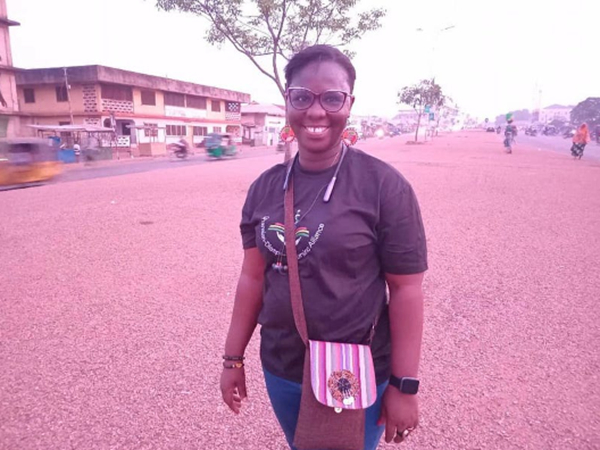
Gloria Sarkodie Addo, Chairperson of SoftLife Ghana flashing a smile. Photo from her LinkedIn
Ghana is beginning to grapple with the extent of the mental health crisis. In 2022 it implemented the World Health Organization’s Director General’s Special Initiative for Mental Health (DG-SIMH). This five-year initiative, supported by the Norwegian government and USAID, aims to ensure that 100 million people globally have access to quality and affordable mental health services across 12 countries, including Ghana.
NGOs, such as SoftLife Ghana, are also dedicated to making a difference. Gloria Addo is concerned about the underestimated impact of illness on children whose parents are mentally unwell. Her organization offers families help with food as well as counseling. “I identify a few people who are mentally challenged and cannot take care of themselves and support them when it comes to medication and other forms of therapy to help them live at least a meaningful life,” she said.
Addo acknowledged the positive impact of community education initiatives, like hers. “It’s essential to convey that mental health encompasses more than just ‘madness’,” she said. “To some extent, it’s yielding results. People now comfortably come forward to explain their experiences or seek help for mental health issues.”
However, she stressed that, “We need to educate people beyond the community sector. For that, the government needs to step up.”
If you or someone you know is struggling with mental health, reach out to someone. Let’s break the silence together.